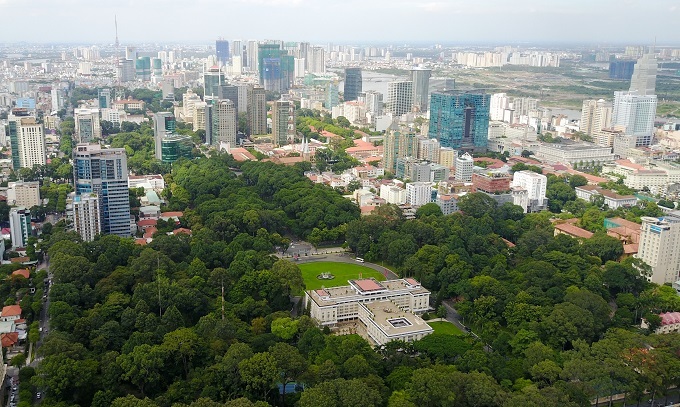Investors are snapping up land in and around Ho Chi Minh City, and the fever is unlikely to cool any time soon, experts said.
Lots on Nguyen Duy Trinh Street in District 9 that were priced at about VND25 million ($1,100) per square meter four weeks ago are now going for VND35 million ($1,540), a 28.5 percent increase.

In the last five years, the average price of land in Phuoc Long B Ward in District 9 has increased by 130 percent, while that figure in Thu Duc District has gone up 170 percent, according to DKRA, a real estate company based in Ho Chi Minh City.
One of the reasons for the rush is the deadly fire at the Carina apartment complex in March which has prompted people to invest in land and houses instead of apartments, according to local real estate agents.
Another reason is that people feel more secure investing in land instead of gold, bank savings or stocks, said Huynh Phuoc Nghia, deputy head of International Business – Marketing at the HCMC University of Economics.
Land in Ho Chi Minh City is proving to be a more reliable investment with value rising by an average of 20 percent over the last four years and the potential for future growth, Nghia said.
The current fever in Ho Chi Minh City will continue for at least the next 12 months, according to real estate experts.
The rush has had a strong impact on the price of land not only in urban areas but also in neighboring provinces, according to Le Tien Vu, deputy general director of Duc Hoa Cat Tuong Real Estate Company.
In Nhon Trach District, which is adjacent to District 2, prices are now at VND10 million ($439) per square meter, up 25 percent compared to the same time last year.
Most areas around the city have increased by VND1-2 million compared to the end of last year.
As Ho Chi Minh City becomes increasingly cramped and housing prices rise, people are making the inevitable migration from the city center to neighboring areas, Huynh Tan Nghia said.
The city’s first metro line, which is currently under construction, will connect it with the neighboring province of Binh Duong. Other highways are also being built or upgraded to connect the city with nearby areas.
These projects have forced real estate prices up in the surrounding provinces, said Tran Thi Cam Tu, CEO of Eximrs Real Estate Company.









